formerly eScholarship Editions


|
|
|
|
Your request for similar items found 20 book(s). | Modify Search | Displaying 1 - 20 of 20 book(s) | |
| 1. | 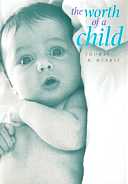 | Title: The worth of a child Author: Murray, Thomas H 1946- Published: University of California Press, 1996 Subjects: Philosophy | Ethics | Medicine | Social Problems | Public Policy Publisher's Description: Thomas Murray's graceful and humane book illuminates one of the most morally complex areas of everyday life: the relationship between parents and children. What do children mean to their parents, and how far do parental obligations go? What, from the beginning of life to its end, is the worth of a child?Ethicist Murray leaves the rarefied air of abstract moral philosophy in order to reflect on the moral perplexities of ordinary life and ordinary people. Observing that abstract moral terms such as altruism and selfishness can be buried in the everyday doings of families, he maintains that ethical theory needs a richer description than it now has of the moral life of parents and children. How far should adults go in their quest for children? What options are available to women who do not want to bear a child now? Should couples be allowed to reject a child because of genetic disability or "wrong" gender? How can we weigh the competing claims of the genetic and the rearing parents to a particular child? The Worth of a Child couples impressive learning with a conversational style. Only by getting down to cases, Murray insists, can we reach moral conclusions that are unsentimental, farsighted, and just. In an era of intense public and private acrimony about the place and meaning of "family values," his practical wisdom about extraordinary difficult moral issues offers compelling reading for both experienced and prospective parents, as well as for ethicists, social and behavioral scientists, and legal theorists. [brief] Similar Items |
| 2. | 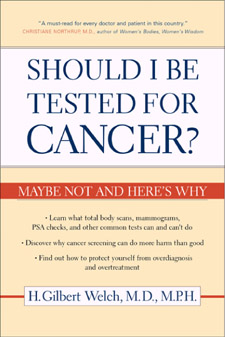 | Title: Should I be tested for cancer?: maybe not and here's why Author: Welch, H. Gilbert Published: University of California Press, 2004 Subjects: Medicine | Health Care | Disease Publisher's Description: Getting tested to detect cancer early is one of the best ways to stay healthy - or is it? In this lively, carefully researched book, a nationally recognized expert on early cancer detection challenges one of medicine's most widely accepted beliefs: that the best defense against cancer is to always try to catch it early. Read this book and you will think twice about common cancer screening tests such as total body scans, mammograms, and prostate-specific antigen (PSA) tests. Combining patient stories and solid data on common cancers, Dr. H. Gilbert Welch makes the case that testing healthy people for cancer is really a double-edged sword: while these tests may help, they often have surprisingly little effect and are sometimes even harmful. Bringing together a body of little-known medical research in an engaging and accessible style, he discusses in detail the pitfalls of screening tests, showing how they can miss some cancers, how they can lead to invasive, unnecessary treatments, and how they can distract doctors from other important issues. Welch's conclusions are powerful, counterintuitive, and disturbing: the early detection of cancer does not always save lives, it can be hard to know who really has early cancer, and there are some cancers better left undiscovered. Should I Be Tested for Cancer? is the only book to clearly and simply lay out the pros and cons of cancer testing for the general public. It is indispensable reading for the millions of Americans who repeatedly face screening tests and who want to make better-informed decisions about their own health care. [brief] Similar Items |
| 3. | 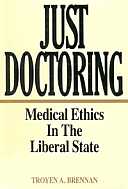 | Title: Just doctoring: medical ethics in the liberal state Author: Brennan, Troyen A Published: University of California Press, 1991 Subjects: Philosophy | Ethics | Medicine Publisher's Description: Just Doctoring draws the doctor-patient relationship out of the consulting room and into the middle of the legal and political arenas where it more and more frequently appears. Traditionally, medical ethics has focused on the isolated relationship of physician to patient in a setting that has left the physician virtually untouched by market constraints or government regulation. Arguing that changes in health care institutions and legal attention to patient rights have made conventional approaches obsolete, Troyen Brennan points the way to a new, more aware and engaged medical ethics.The medical profession is no longer isolated, even theoretically, from the liberal, market-dominated state. Old ideas of physician beneficence and altruism must make way for a justice-based medical ethics, assuming a relationship between equals more compatible with liberal political philosophy. Brennan offers clinical examples of many of today's most challenging medical problems - from informed consent to care rationing and the repercussions of the HIV epidemic - and gives his recommendation for a new ethical perspective. This lively and controversial plea for a rethinking of medical ethics goes right to the heart of medical care at the end of the twentieth century. [brief] Similar Items |
| 4. | 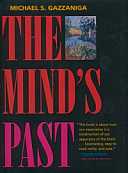 | Title: The mind's past Author: Gazzaniga, Michael S Published: University of California Press, 1998 Subjects: Science | Psychology | Cognitive Science | Neuroscience Publisher's Description: Why does the human brain insist on interpreting the world and constructing a narrative? In this ground-breaking work, Michael S. Gazzaniga, one of the world's foremost cognitive neuroscientists, shows how our mind and brain accomplish the amazing feat of constructing our past - a process clearly fraught with errors of perception, memory, and judgment. By showing that the specific systems built into our brain do their work automatically and largely outside of our conscious awareness, Gazzaniga calls into question our everyday notions of self and reality. The implications of his ideas reach deeply into the nature of perception and memory, the profundity of human instinct, and the ways we construct who we are and how we fit into the world around us.Over the past thirty years, the mind sciences have developed a picture not only of how our brains are built but also of what they were built to do. The emerging picture is wonderfully clear and pointed, underlining William James's notion that humans have far more instincts than other animals. Every baby is born with circuits that compute information enabling it to function in the physical world. Even what helps us to establish our understanding of social relations may have grown out of perceptual laws delivered to an infant's brain. Indeed, the ability to transmit culture - an act that is only part of the human repertoire - may stem from our many automatic and unique perceptual-motor processes that give rise to mental capacities such as belief and culture.Gazzaniga explains how the mind interprets data the brain has already processed, making "us" the last to know. He shows how what "we" see is frequently an illusion and not at all what our brain is perceiving. False memories become a part of our experience; autobiography is fiction. In exploring how the brain enables the mind, Gazzaniga points us toward one of the greatest mysteries of human evolution: how we become who we are. [brief] Similar Items |
| 5. | 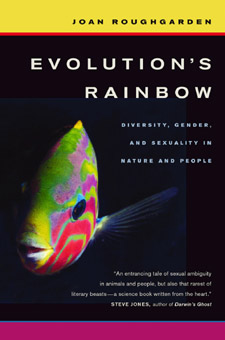 | Title: Evolution's rainbow: diversity, gender, and sexuality in nature and people Author: Roughgarden, Joan Published: University of California Press, 2004 Subjects: Gender Studies | EcologyEvolutionEnvironment | Anthropology | Evolution | Health Care | Social Problems | GayLesbian and Bisexual Studies | Social Problems Publisher's Description: In this innovative celebration of diversity and affirmation of individuality in animals and humans, Joan Roughgarden challenges accepted wisdom about gender identity and sexual orientation. A distinguished evolutionary biologist, Roughgarden takes on the medical establishment, the Bible, social science - and even Darwin himself. She leads the reader through a fascinating discussion of diversity in gender and sexuality among fish, reptiles, amphibians, birds, and mammals, including primates. Evolution's Rainbow explains how this diversity develops from the action of genes and hormones and how people come to differ from each other in all aspects of body and behavior. Roughgarden reconstructs primary science in light of feminist, gay, and transgender criticism and redefines our understanding of sex, gender, and sexuality. Witty, playful, and daring, this book will revolutionize our understanding of sexuality. Roughgarden argues that principal elements of Darwinian sexual selection theory are false and suggests a new theory that emphasizes social inclusion and control of access to resources and mating opportunity. She disputes a range of scientific and medical concepts, including Wilson's genetic determinism of behavior, evolutionary psychology, the existence of a gay gene, the role of parenting in determining gender identity, and Dawkins's "selfish gene" as the driver of natural selection. She dares social science to respect the agency and rationality of diverse people; shows that many cultures across the world and throughout history accommodate people we label today as lesbian, gay, and transgendered; and calls on the Christian religion to acknowledge the Bible's many passages endorsing diversity in gender and sexuality. Evolution's Rainbow concludes with bold recommendations for improving education in biology, psychology, and medicine; for democratizing genetic engineering and medical practice; and for building a public monument to affirm diversity as one of our nation's defining principles. [brief] Similar Items |
| 6. | 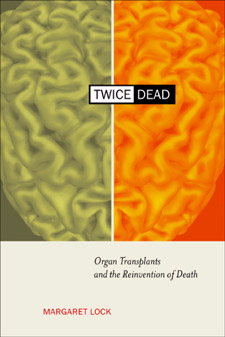 | Title: Twice dead: organ transplants and the reinvention of death Author: Lock, Margaret M Published: University of California Press, 2001 Subjects: Anthropology | Medical Anthropology | Cultural Anthropology | Ethics | Sociology | Sociology | Ethics | Sociology | Ethnic Studies | Ethnic Studies Publisher's Description: Tales about organ transplants appear in mythology and folk stories, and surface in documents from medieval times, but only during the past twenty years has medical knowledge and technology been sufficiently advanced for surgeons to perform thousands of transplants each year. In the majority of cases individuals diagnosed as "brain dead" are the source of the organs without which transplants could not take place. In this compelling and provocative examination, Margaret Lock traces the discourse over the past thirty years that contributed to the locating of a new criterion of death in the brain, and its routinization in clinical practice in North America. She compares this situation with that in Japan where, despite the availability of the necessary technology and expertise, brain death was legally recognized only in 1997, and then under limited and contested circumstances. Twice Dead explores the cultural, historical, political, and clinical reasons for the ready acceptance of the new criterion of death in North America and its rejection, until recently, in Japan, with the result that organ transplantation has been severely restricted in that country. This incisive and timely discussion demonstrates that death is not self-evident, that the space between life and death is historically and culturally constructed, fluid, multiple, and open to dispute. In addition to an analysis of that professional literature on and popular representations of the subject, Lock draws on extensive interviews conducted over ten years with physicians working in intensive care units, transplant surgeons, organ recipients, donor families, members of the general public in both Japan and North America, and political activists in Japan opposed to the recognition of brain death. By showing that death can never be understood merely as a biological event, and that cultural, medical, legal, and political dimensions are inevitably implicated in the invention of brain death, Twice Dead confronts one of the most troubling questions of our era. [brief] Similar Items |
| 7. | 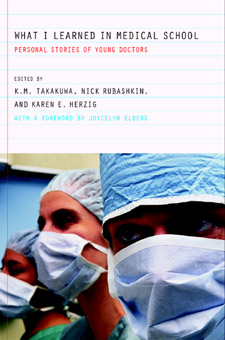 | Title: What I learned in medical school: personal stories of young doctors Author: Takakuwa, Kevin M Published: University of California Press, 2004 Subjects: Medicine | Sociology | Ethnic Studies | Gender Studies | Anthropology | Health Care Publisher's Description: Like many an exclusive club, the medical profession subjects its prospective members to rigorous indoctrination: medical students are overloaded with work, deprived of sleep and normal human contact, drilled and tested and scheduled down to the last minute. Difficult as the regimen may be, for those who don't fit the traditional mold - white, male, middle-to-upper class, and heterosexual - medical school can be that much more harrowing. This riveting book tells the tales of a new generation of medical students - students whose varied backgrounds are far from traditional. Their stories will forever alter the way we see tomorrow's doctors. In these pages, a black teenage mother overcomes seemingly insurmountable odds, an observant Muslim dons the hijab during training, an alcoholic hides her addiction. We hear the stories of an Asian refugee, a Mexican immigrant, a closeted Christian, an oversized woman - these once unlikely students are among those who describe their medical school experiences with uncommon candor, giving a close-up look at the inflexible curriculum, the pervasive competitive culture, and the daunting obstacles that come with being "different" in medical school. Their tales of courage are by turns poignant, amusing, eye-opening - and altogether unforgettable. [brief] Similar Items |
| 8. | 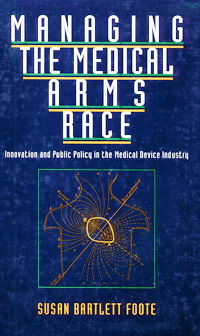 | Title: Managing the medical arms race: public policy and medical device innovation Author: Foote, Susan Bartlett Published: University of California Press, 1992 Subjects: Politics | Medicine | Public Policy | Economics and Business Publisher's Description: The allure of medical innovation is powerful - it holds out the promise of perfect health, the end of pain, the deferral of death. Our insatiable appetite for costly new technologies, fed by a profusion of innovations and the profits they generate, has led to what has been dubbed the medical arms race. During the last several decades government has been called upon to manage the escalation of this race.Foote has written the first comprehensive examination of the profound influence of government policies on medical innovation. She explains how these policies have proliferated to affect every stage of the innovative process in medical device technology - from the first research idea to the patient's bedside. Drawing on case studies of technologies as diverse as lasers, cardiac pacemakers, CT scanners, and IUDs, she traces the interaction between the industry and government institutions, including the National Institutes of Health, the FDA, and the Medicare and Medicaid programs.Public policies during the 1950s and 1960s, Foote discovers, tended to promote innovation, while the regulation and cost controls of the 1970s and 1980s began to inhibit it. For the 1990s and beyond she proposes incremental policy improvements that will rationalize and streamline government intervention. She cautions that we must recognize the limits of medical technology and public policy to cure all ills.Medical innovation is a crucial part of health care reform, a subject of increasing complexity and controversy. Written clearly and accessibly, Managing the Medical Arms Race is an invaluable source for medical, industry, and policy professionals, but it also has much to say to anybody concerned with how we as a society choose to take care of our health. [brief] Similar Items |
| 9. | 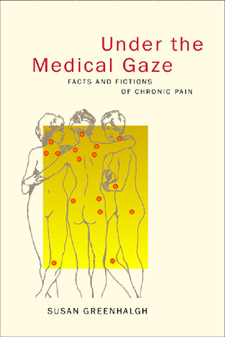 | Title: Under the medical gaze: facts and fictions of chronic pain Author: Greenhalgh, Susan Published: University of California Press, 2001 Subjects: Anthropology | Folklore and Mythology | Medical Anthropology | Physical Anthropology | Cultural Anthropology | Medicine | Gender Studies | Sociology | Social Problems | Social Problems Publisher's Description: This compelling account of the author's experience with a chronic pain disorder and subsequent interaction with the American health care system goes to the heart of the workings of power and culture in the biomedical domain. It is a medical whodunit full of mysterious misdiagnosis, subtle power plays, and shrewd detective work. Setting a new standard for the practice of autoethnography, Susan Greenhalgh presents a case study of her intense encounter with an enthusiastic young specialist who, through creative interpretation of the diagnostic criteria for a newly emerging chronic disease, became convinced she had a painful, essentially untreatable, lifelong muscle condition called fibromyalgia. Greenhalgh traces the ruinous effects of this diagnosis on her inner world, bodily health, and overall well-being. Under the Medical Gaze serves as a powerful illustration of medicine's power to create and inflict suffering, to define disease and the self, and to manage relationships and lives. Greenhalgh ultimately learns that she had been misdiagnosed and begins the long process of undoing the physical and emotional damage brought about by her nearly catastrophic treatment. In considering how things could go so awry, she embarks on a cogent and powerful analysis of the sociopolitical sources of pain through feminist, cultural, and political understandings of the nature of medical discourse and practice in the United States. She develops fresh arguments about the power of medicine to medicalize our selves and lives, the seductions of medical science, and the deep, psychologically rooted difficulties women patients face in interactions with male physicians. In the end, Under the Medical Gaze goes beyond the critique of biomedicine to probe the social roots of chronic pain and therapeutic alternatives that rely on neither the body-cure of conventional medicine nor the mind-cure of some alternative medicines, but rather a broader set of strategies that address the sociopolitical sources of pain. [brief] Similar Items |
| 10. | 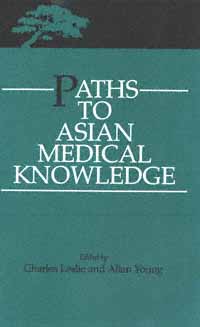 | Title: Paths to Asian medical knowledge Author: Leslie, Charles M 1923- Published: University of California Press, 1992 Subjects: Anthropology | Medical Anthropology | Asian Studies Publisher's Description: Like its classic predecessor, Asian Medical Systems , Paths to Asian Medical Knowledge significantly expands the study of Asian medicine. These essays ask how patients and practitioners know what they know - what evidence of disease or health they consider convincing and what cultural traditions and symbols guide their thinking. Whether discussing Japanese anatomy texts, Islamic humoralism, Ayurvedic clinical practice, or a variety of other subjects, the authors offer an exciting range of information and suggest new theoretical avenues for medical anthropology. [brief] Similar Items |
| 11. | 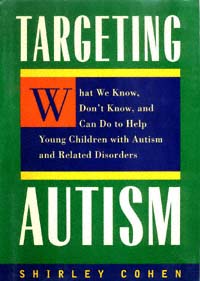 | Title: Targeting autism: what we know, don't know, and can do to help young children with autism and related disorders Author: Cohen, Shirley Published: University of California Press, 1998 Subjects: Sociology | Social Problems | Education | Psychology | Psychiatry | Medicine Similar Items |
| 12. | 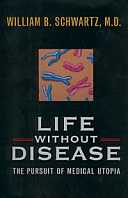 | Title: Life without disease: the pursuit of medical utopia Author: Schwartz, William B 1922- Published: University of California Press, 1998 Subjects: Science | Medicine | Economics and Business | History and Philosophy of Science | Public Policy Publisher's Description: The chaotic state of today's health care is the result of an explosion of effective medical technologies. Rising costs will continue to trouble U.S. health care in the coming decades, but new molecular strategies may eventually contain costs. As life expectancy is dramatically extended by molecular medicine, a growing population of the aged will bring new problems. In the next fifty years genetic intervention will shift the focus of medicine in the United States from repairing the ravages of disease to preventing the onset of disease. Understanding the role of genes in human health, says Dr. William B. Schwartz, is the driving force that will change the direction of medical care, and the age-old dream of life without disease may come close to realization by the middle of the next century. Medical care in 2050 will be vastly more effective, Schwartz maintains, and it may also be less expensive than the resource-intensive procedures such as coronary bypass surgery that medicine relies on today.Schwartz's alluring prospect of a medical utopia raises urgent questions, however. What are the scientific and public policy obstacles that must be overcome if such a goal is to become a reality? Restrictions on access imposed by managed care plans, the corporatization of charitable health care institutions, the increasing numbers of citizens without health insurance, the problems with malpractice insurance, and the threatened Medicare bankruptcy - all are the legacy of medicine's great progress in mastering the human body and society's inability to assimilate that mastery into existing economic, ethical, and legal structures. And if the average American life span is 130 years, a genuine possibility by 2050, what social and economic problems will result?Schwartz examines the forces that have brought us to the current health care state and shows how those same forces will exert themselves in the decades ahead. Focusing on the inextricable link between scientific progress and health policy, he encourages a careful examination of these two forces in order to determine the kind of medical utopia that awaits us. The decisions we make will affect not only our own care, but also the system of care we bequeath to our children. [brief] Similar Items |
| 13. |  | Title: Workers against work: labor in Paris and Barcelona during the popular fronts Author: Seidman, Michael (Michael M.) Published: University of California Press, 1990 Subjects: History | European History | Social Science | French Studies | Labor Studies Publisher's Description: Why did a revolution occur in Spain and not in France in 1936? This is the key question Michael Seidman explores in his important new study of the relations between industrial capitalists and working-class movements in the early part of this century. In a comparative analysis of Paris during the Popular Front and Barcelona during the Spanish Revolution, Seidman examines the strengths and weaknesses of the bourgeoisie in these two cities and traces workers' resistance to, and acceptance of, work. His emphasis on the continuing refusal to work challenges the dominant views of labor historiography and contributes to a general theory of revolutionary workers' control.Seidman illuminates three crucial issues that have broad implications for the history of the twentieth century. His comparative approach delineates the nature of class confrontation in societies with different kinds of bourgeoisies or capitalist elites. He also shows how the differences between these elites affected the labor movements in France and Spain, and he demonstrates how rank-and-file workers actually responded to the revolutionary situation in Barcelona and to the advent of the reformist government in Paris.A social history of acceptance and rejection of work, this book offers a new conceptualization of wage earners and a critique of work itself. [brief] Similar Items |
| 14. | 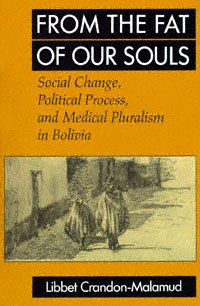 | Title: From the fat of our souls: social change, political process, and medical pluralism in Bolivia Author: Crandon-Malamud, Libbet Published: University of California Press, 1991 Subjects: Anthropology | Latin American Studies | Politics | Medical Anthropology | Medicine Publisher's Description: From the Fat of Our Souls offers a revealing new perspective on medicine, and the reasons for choosing or combining indigenous and cosmopolitan medical systems, in the Andean highlands. Closely observing the dialogue that surrounds medicine and medical care among Indians and Mestizos, Catholics and Protestants, peasants and professionals in the rural town of Kachitu, Libbet Crandon-Malamud finds that medical choice is based not on medical efficacy but on political concerns. Through the primary resource of medicine, people have access to secondary resources, the principal one being social mobility. This investigation of medical pluralism is also a history of class formation and the fluidity of both medical theory and social identity in highland Bolivia, and it is told through the often heartrending, often hilarious stories of the people who live there. [brief] Similar Items |
| 15. | 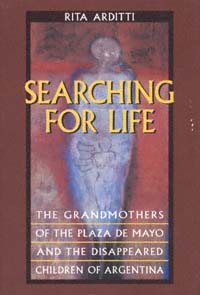 | Title: Searching for life: the grandmothers of the Plaza de Mayo and the disappeared children of Argentina Author: Arditti, Rita 1934- Published: University of California Press, 1999 Subjects: Latin American Studies | Sociology | Gender Studies Publisher's Description: FROM THE BOOK :"I want to touch you and kiss you.""You are my mother's sister and only one year older; you must have something of my mother in you." - A found child after being returned to her family Searching for Life traces the courageous plight of the Grandmothers of the Plaza de Mayo, a group of women who challenged the ruthless dictatorship that ruled Argentina from 1976 to 1983. Acting as both detectives and human rights advocates in an effort to find and recover their grandchildren, the Grandmothers identified fifty-seven of an estimated 500 children who had been kidnapped or born in detention centers. The Grandmothers' work also led to the creation of the National Genetic Data Bank, the only bank of its kind in the world, and to Article 8 of the United Nations Convention on the Rights of the Child, the "right to identity," that is now incorporated in the new adoption legislation in Argentina. Rita Arditti has conducted extensive interviews with twenty Grandmothers and twenty-five others connected with their work; her book is a testament to the courage, persistence, and strength of these "traditional" older women.The importance of the Grandmothers' work has effectively transcended the Argentine situation. Their tenacious pursuit of justice defies the culture of impunity and the historical amnesia that pervades Argentina and much of the rest of the world today. In addition to reconciling the "living disappeared" with their families of origin, these Grandmothers restored a chapter of history that, too, had been abducted and concealed from its rightful heirs. [brief] Similar Items |
| 16. | 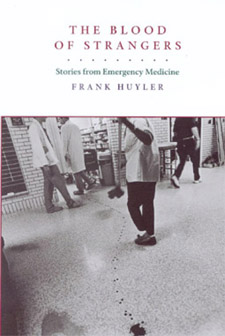 | Title: The blood of strangers: stories from emergency medicine Author: Huyler, Frank 1964- Published: University of California Press, 1999 Subjects: Medicine | American Literature | Autobiography Publisher's Description: Reminiscent of Chekhov's stories, The Blood of Strangers is a visceral portrayal of a physician's encounters with the highly charged world of an emergency room. In this collection of spare and elegant stories, Dr. Frank Huyler reveals a side of medicine where small moments - the intricacy of suturing a facial wound, the bath a patient receives from her husband and daughter - interweave with the lives and deaths of the desperately sick and injured. The author presents an array of fascinating characters, both patients and doctors - a neurosurgeon who practices witchcraft, a trauma surgeon who unexpectedly commits suicide, a wounded murderer, a man chased across the New Mexico desert by a heat-seeking missile. At times surreal, at times lyrical, at times brutal and terrifying, The Blood of Strangers is a literary work that emerges from one of the most dramatic specialties of modern medicine. This deeply affecting first book has been described by one early reader as "the best doctor collection I have seen since William Carlos Williams's The Doctor Stories ." [brief] Similar Items |
| 17. | 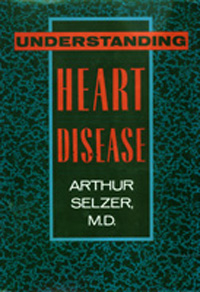 | Title: Understanding heart disease Author: Selzer, Arthur Published: University of California Press, 1992 Subjects: Medicine | Science Publisher's Description: Diseases of the heart are the leading cause of death in the Western world. Health professionals and the general public alike eagerly watch advances in the prevention, diagnosis, and treatment of heart disease. Yet the more spectacular aspects of medical progress in the field are often reported prematurely and their potential benefits exaggerated.Written in clear, accessible language, this book presents an authoritative and balanced picture of how heart diseases are recognized and managed. From his many years of experience, Dr. Selzer believes a well-informed patient can cooperate more successfully with a physician, and his book includes information vital to anyone confronting heart problems and cardiac emergencies. [brief] Similar Items |
| 18. |  | Title: Popular music and national culture in Israel Author: Regev, Motti Published: University of California Press, 2004 Subjects: Music | Ethnomusicology | Middle Eastern Studies | Popular Culture | Jewish Studies Publisher's Description: A unique Israeli national culture - indeed, the very nature of "Israeliness" - remains a matter of debate, a struggle to blend vying memories and backgrounds, ideologies and wills. Identifying popular music as an important site in this wider cultural endeavor, this book focuses on the three major popular music cultures that are proving instrumental in attempts to invent Israeliness: the invented folk song repertoire known as Shirei Eretz Israel; the contemporary, global-cosmopolitan Israeli rock; and the ethnic-oriental musica mizrahit. The result is the first ever comprehensive study of popular music in Israel. Motti Regev, a sociologist, and Edwin Seroussi, an ethnomusicologist, approach their subject from alternative perspectives, producing a truly interdisciplinary, sociocultural account of music as a feature and a force in the shaping of Israeliness. A major ethnographic undertaking, describing and analyzing the particular history, characteristics, and practices of each music culture, Popular Music and National Culture in Israel maps not only the complex field of Israeli popular music but also Israeli culture in general. [brief] Similar Items |
| 19. |  | Title: Working families: the transformation of the American home Author: Hertz, Rosanna Published: University of California Press, 2001 Subjects: Gender Studies | Women's Studies | Sociology | Social Problems | Anthropology | Economics and Business | Urban Studies | Ethnic Studies | Politics | Politics Publisher's Description: The dynamics of work and parenthood are in the midst of a revolutionary shift in the United States. Focused around a major factor in this shift - the rise of dual-income families - this groundbreaking volume provides a highly informative snapshot of the intricate fabric of work and family in the United States. With selections written by leading scholars both inside and outside academia, Working Families offers intimate stories of how families manage and how children respond to the rigors of their parents' lives, as well as broad overviews developed from survey and census data. Taken together, these essays present an updated and integral view of the revolutionary changes in patterns of work and family life occurring today. Using a broad range of methodologies, the contributors reach across gender, age, and class differences. They discuss working-class as well as affluent dual-career couples and work sites ranging from factories to offices. Straddling racial divides, the essays range from studies of white day care providers to a close look at a Mexican maid's daughter. The collection as a whole refutes the assumption that there is one normal type of family or workplace. These readable essays capture our attention as they build, cumulatively, to an absorbing picture of today's families and workplaces. [brief] Similar Items |
| 20. | 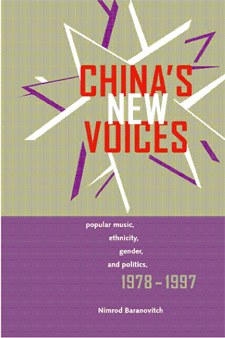 | Title: China's new voices: popular music, ethnicity, gender, and politics, 1978-1997 Author: Baranovitch, Nimrod 1965- Published: University of California Press, 2003 Subjects: Music | China | Popular Music | Ethnomusicology | Politics | Gender Studies Publisher's Description: This is the most comprehensive study to date of the rich popular music scene in contemporary China. Focusing on the city of Beijing and drawing upon extensive fieldwork, China's New Voices shows that during the 1980s and 1990s, rock and pop music, combined with new technologies and the new market economy, have enabled marginalized groups to achieve a new public voice that is often independent of the state. Nimrod Baranovitch analyzes this phenomenon by focusing on three important contexts: ethnicity, gender, and state politics. His study is a fascinating look at the relationship between popular music in China and broad cultural, social, and political changes that are taking place there. Baranovitch's sources include formal interviews and conversations conducted with some of China's most prominent rock and pop musicians and music critics, with ordinary people who provide lay perspectives on popular music culture, and with others involved in the music industry and in academia. Baranovitch also observed recording sessions, concerts, and dance parties, and draws upon TV broadcasts and many publications in Chinese about popular music. keywords: Ethnicity [brief] Similar Items |